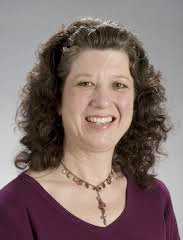Here’s how to handle what bothers you

Some problems seem beyond our control: world hunger, child abuse, epidemics. When you think about such thorny issues, you may feel helpless.
But break those problems down into smaller pieces, and you may find a way to tackle them. Once upon a time smallpox ravaged the earth. It caused blindness. It deformed children. It killed 300–500 million people during the 20th century. Just 32 years ago, through a combination of inoculation and education, it was eradicated.
Likewise, only 70 years ago, polio was a terrifying epidemic. 57,000 cases were reported in the U.S. that year. In truth, more individuals died that year from cancer and tuberculosis, but public concern made polio the most feared disease. Today it has been essentially eliminated.
What role did philanthropy play? The national campaign against polio is a good example. Rather than appeal to wealthy benefactors, the March of Dimes invited small donations from millions of individuals. This raised hundreds of millions and led directly to the development of vaccines. By 1961 only 161 cases were reported in the US.
The lesson is that focused philanthropy is a powerful tool for change.  Your gifts to annual campaigns for all sorts of good causes have made America the most charitable nation on earth.  But sending a check is not the only option. Most nonprofits also welcome bequests that help them sustain their work.
Our state is home to more than 80,000 registered charities. The combination of volunteerism and philanthropy accounts for more than half the revenue they report. Close your eyes, name an alarming issue, and you are almost certainly going to find a local or national nonprofit dedicated to addressing it.
Here’s a quick test:  Worried about Puget Sound pollution? At least seven nonprofits work on it: Alliance for Puget Sound Shoreline; People for Puget Sound; Forterra; the Nature Conservancy; Puget Sound Restoration Fund; Puget Soundkeeper Alliance; the Trust for Public Land. This does not count dozens of regional watershed efforts like Puget Creek Restoration Society.
In short: pick a concern that keeps you awake. Check the Internet to see if there’s a nonprofit focused on it. Since big problems like that don’t disappear overnight, find out if they could use a gift in your will to support that work over the next 20 years.
Mike Robinson is Senior Vice President for Planned Giving at United Way of Pierce County.Please consult a qualified estate planner before making a gift in your will.

